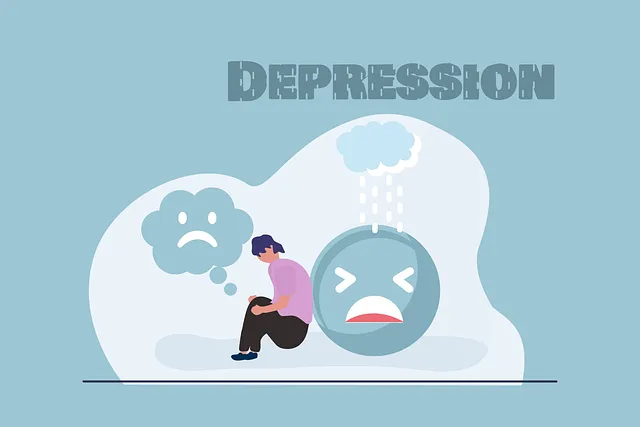Golden Kaiser Permanente mental health providers employ robust risk assessment tools to safeguard patients and themselves. They use strategies like Empathy Building, Mental Wellness Coaching, Emotional Well-being Promotion, Crisis Intervention, and Self-Care Practices to minimize harm, enhance wellness, empower patients, and strengthen patient-provider relationships, creating a supportive environment that fosters resilience.
“Risk assessment and harm minimization are paramount in mental health care, ensuring patient safety and well-being. This article explores critical strategies for healthcare professionals, offering a comprehensive guide to navigating these essential practices. We delve into the foundational concepts of risk evaluation, drawing insights from the renowned Kaiser Permanente model, known for its effective harm minimization approach. Additionally, we present practical strategies for mental health providers to implement robust risk management planning, highlighting the Golden Kaiser Permanente methods for optimal patient care.”
- Understanding Risk Assessment in Mental Health Care
- The Kaiser Permanente Approach to Harm Minimization
- Strategies for Effective Risk Management Planning
Understanding Risk Assessment in Mental Health Care

Risk assessment is a fundamental aspect of mental health care, crucial for ensuring the safety and well-being of both patients and Golden Kaiser Permanente mental health providers. It involves meticulously evaluating and understanding potential risks associated with an individual’s mental health condition, treatment plans, or the therapeutic environment. This process helps in developing targeted interventions aimed at minimizing harm and promoting positive thinking.
By implementing robust risk assessment strategies, such as Empathy Building Strategies, Golden Kaiser Permanente can foster a supportive care environment. Mental Wellness Coaching Programs Development plays a significant role in this regard, empowering both patients and caregivers to proactively manage risks. This proactive approach not only enhances mental wellness but also strengthens the patient-provider relationship, fostering trust and understanding.
The Kaiser Permanente Approach to Harm Minimization
The Golden Kaiser Permanente approach to harm minimization places a strong emphasis on empowering mental health providers to proactively identify and address risks within their patients’ lives. This holistic strategy goes beyond traditional therapy by integrating Emotional Well-being Promotion Techniques into routine care. Mental health providers are equipped with tools to facilitate open dialogues, enabling them to understand patients’ unique challenges and guide them towards developing coping skills.
Through the production of a Mental Wellness Podcast Series, Kaiser Permanente aims to expand access to resources and knowledge. This innovative approach not only reaches a broader audience but also enhances the overall mental wellness of individuals. By combining these strategies, Kaiser Permanente strives to create a supportive environment that fosters resilience and promotes better emotional well-being for all its patients.
Strategies for Effective Risk Management Planning

Effective risk management planning is a cornerstone of any robust mental health strategy, and Golden Kaiser Permanente mental health providers are no exception. The process begins with a thorough assessment of potential risks, both internal and external, that could negatively impact patient well-being. This includes identifying triggers specific to each individual’s history and current circumstances. Once these risks are mapped out, the team can develop tailored interventions.
Strategic planning involves implementing a multi-faceted approach, such as providing Crisis Intervention Guidance to empower patients with coping mechanisms during challenging times. Encouraging Self-Care Practices is another key strategy, fostering Emotional Regulation skills that allow individuals to navigate stress and adversity more effectively. By integrating these initiatives into care protocols, Golden Kaiser Permanente ensures a proactive rather than reactive stance, ultimately enhancing patient safety and outcomes.
Risk assessment and harm minimization planning are essential components of providing quality care, especially within the context of mental health services. By adopting strategies like those exemplified by the Golden Kaiser Permanente mental health providers, healthcare professionals can effectively manage risks and promote safer environments. Understanding risk assessment and implementing robust harm minimization plans empower mental health caregivers to offer evidence-based interventions, ultimately enhancing patient outcomes and ensuring a more secure care journey.






